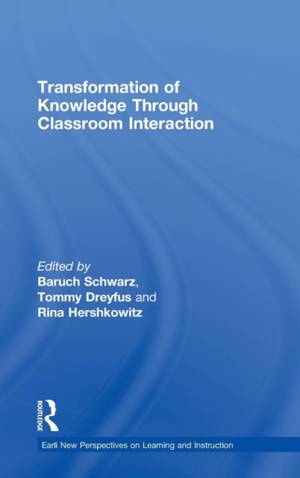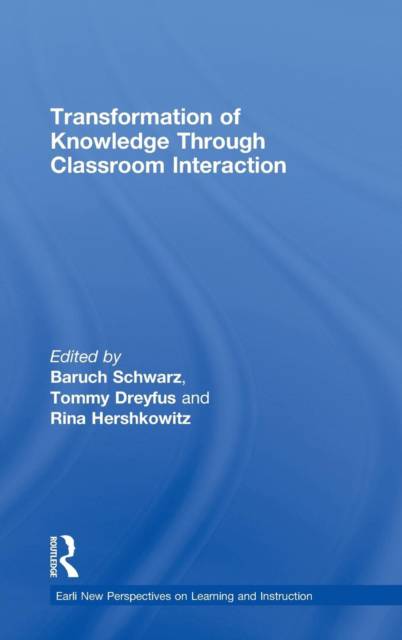
- Retrait gratuit dans votre magasin Club
- 7.000.000 titres dans notre catalogue
- Payer en toute sécurité
- Toujours un magasin près de chez vous
- Retrait gratuit dans votre magasin Club
- 7.000.0000 titres dans notre catalogue
- Payer en toute sécurité
- Toujours un magasin près de chez vous
Transformation of Knowledge through Classroom Interaction
Description
Classrooms provide extremely varied settings in which learning may take place, including teacher-led conversations, small group unguided discussions, individual problem solving or computer supported collaborative learning (CSCL).
Transformation of Knowledge through Classroom Interaction examines and evaluates different ways which have been used to support students learning in classrooms, using mathematics and science as a model to examine how different types of interactions contribute to students' participation in classroom activity, and their understanding of concepts and their practical applications. The contributions in this book offer rich descriptions and ways of understanding how learning occurs in both traditional and non-traditional settings. Combining theoretical perspectives with practical applications, the book includes discussions of:
- the roles of dialogue and argumentation in constructing knowledge
- the role of guidance in constructing knowledge
- abstracting processes in mathematics and science classrooms
- the effect of environment, media and technology on learning processes
- methodologies for tracing transformation of knowledge in classroom interaction.
Bringing together a broad range of contributions from leading international researchers, this book makes an important contribution to the field of classroom learning, and will appeal to all those engaged in academic research in education.
Spécifications
Parties prenantes
- Editeur:
Contenu
- Nombre de pages :
- 334
- Langue:
- Anglais
- Collection :
Caractéristiques
- EAN:
- 9780415492249
- Date de parution :
- 15-04-09
- Format:
- Livre relié
- Format numérique:
- Genaaid
- Dimensions :
- 156 mm x 234 mm
- Poids :
- 644 g

Les avis
Nous publions uniquement les avis qui respectent les conditions requises. Consultez nos conditions pour les avis.





